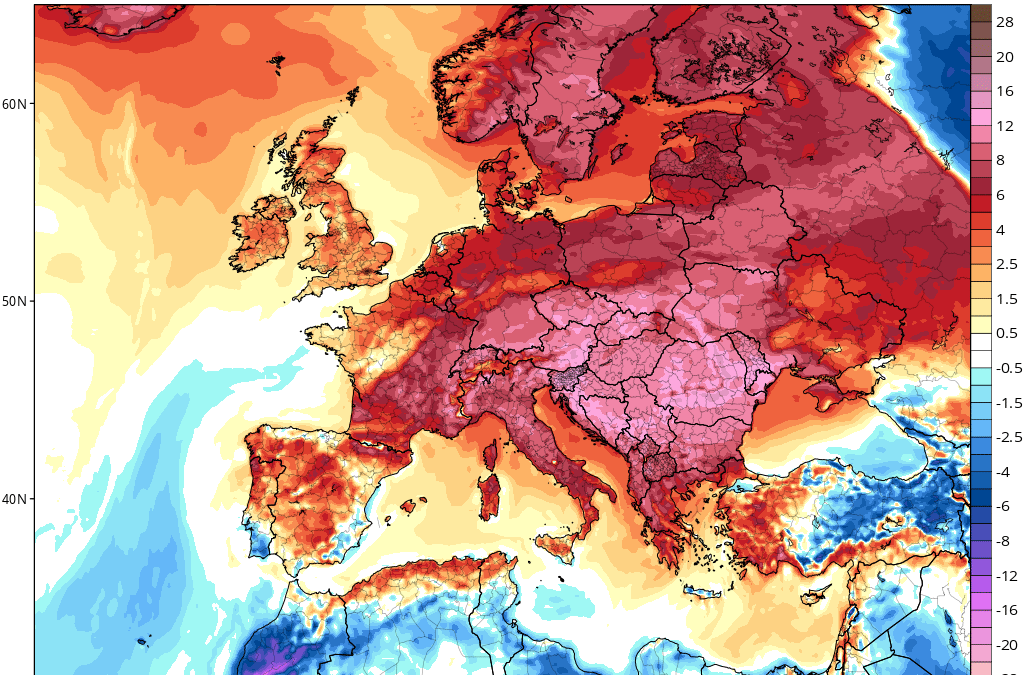Poland yesterday had its hottest February day on record, with a highest temperature of 22.1°C (71.8°F) recorded in the town of Maków Podhalański.
Warsaw also broke its record for highest February temperature twice in two days, reaching a peak of 18.3°C yesterday. But the warm spell follows soon after weeks of sub-zero temperatures and heavy snowfall, with climate scientists warning that the pattern is a dangerous sign.
#IMGWlive 12:45
🔴PADŁ KOLEJNY REKORD TEMPERATURY.
🌡️Tym razem w Makowie Podhalański, termometry pokazują już 22°C.
📆Przypomnijmy, że dotychczasowy rekord temperatury dla Makowa Podhalańskiego w lutym był zarejestrowany 25 lutego 1990 roku i wynosił 21,4°C.#MakówPodhalański pic.twitter.com/I6riI3MjdY— IMGW-PIB METEO POLSKA (@IMGWmeteo) February 25, 2021
Maków Podhalański, in the foothills of Poland’s southern mountains, also held Poland’s previous February record, set in 1990, when the temperature reached 21.4°C. That was the same year that Warsaw had its previous warmest February day, of 17.2°C, reports Interia.
Cities in southwestern Poland came close to breaking the record on Wednesday, with Pszenna in Lower Silesia reaching 21.3°C. Wrocław also recorded a temperature above 20°C. Around the country, 40 weather stations noted new local records.
Poland had been experiencing one of its coldest and snowiest winters in years before the recent sharp rise in temperatures. The maximum daily temperature in Warsaw rose by 21°C in the week leading up to yesterday’s record. A week before that, temperatures had been at minus 11°C.
In January, temperatures at ground level in the city of Suwałki in northeastern Poland plummeted to -30.8°C, while the lowest temperature at the standard measurement height above the ground was -25.5°C in nearby Gołdap.
But the general trend in recent years has been for hotter winters and summers. 2019 was Poland’s hottest year since records began in 1781.
Climatologists from Wrocław University warn that the increasing number of warm days in winter is a sign of serious climate change, noting that temperatures exceeding 15°C have been recorded in February in six of the last 20 years, much more than in previous periods.
“The increase in temperatures could cause problems with drought, as we have observed in recent years,” said climatologist Marek Błaś from the university.
“Warm winters result in a lack of water from melting of the snow cover. If, on top of that, we have a low amount of precipitation in spring, this could have dramatic consequences for the development of plants and agriculture,” he added.
Main image credit: tropicaltidbits.com

Ben Koschalka is a translator, lecturer, and senior editor at Notes from Poland. Originally from Britain, he has lived in Kraków since 2005.




















